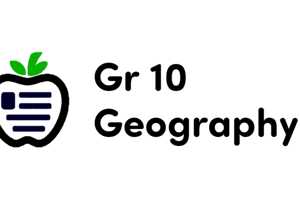Podcast
Questions and Answers
What is a common feature of Transaction Processing Systems?
What is a common feature of Transaction Processing Systems?
- Processing large amounts of data manually
- Providing regular management reports
- Assisting in unstructured decisions
- Following routines without any variance (correct)
What is the primary concern of Management Information Systems?
What is the primary concern of Management Information Systems?
- Supporting managerial decisions
- Providing data for unstructured decisions
- Offering information essential for smooth business operations (correct)
- Processing transactions quickly
What is a Formal Information System based on?
What is a Formal Information System based on?
- Business applications and transactions
- Computer-based systems and technology
- Organizational chart represented by the organization (correct)
- Employee needs and preferences
What is unique about Decision Support Systems?
What is unique about Decision Support Systems?
What is the primary purpose of a Transaction Processing System?
What is the primary purpose of a Transaction Processing System?
What is the main goal of Office Automation Systems?
What is the main goal of Office Automation Systems?
What is an Informal Information System designed to meet?
What is an Informal Information System designed to meet?
Which system is concerned with processing large amounts of data quickly?
Which system is concerned with processing large amounts of data quickly?
What is a common feature of an Informal Information System?
What is a common feature of an Informal Information System?
What is a class of system that includes Transaction Processing System, Management Information System, and Decision Support System?
What is a class of system that includes Transaction Processing System, Management Information System, and Decision Support System?
What type of decisions are supported by Decision Support Systems?
What type of decisions are supported by Decision Support Systems?
What is a Transaction in the context of a Transaction Processing System?
What is a Transaction in the context of a Transaction Processing System?
Flashcards are hidden until you start studying
Study Notes
Types of Information Systems
- Formal Information System: based on organizational chart, represented by the organization
- Informal Information System: employee-based, designed to meet personal and vocational needs, helps in solving work-related problems, and funnels information upward through indirect channels
Computer-Based Information Systems (CBIS)
- Dependent on computers for handling business applications
- Developed by system analysts to meet various business needs
- Classified into:
- Transaction Processing System (TPS)
- Management Information System (MIS)
- Decision Support System (DSS)
- Office Automation System (OAS)
Transaction Processing System (TPS)
- Processes business transactions
- Captures, classifies, stores, maintains, updates, and retrieves transaction data
- Aims to improve routine business activities
- Transactions: events or activities that affect the organization, e.g., placing orders, billing customers, hiring employees, and depositing cheques
- Provides speed and accuracy, can be programmed to follow routines without variance
Management Information System (MIS)
- Concerned with providing information to management levels
- Processes large amounts of data quickly and efficiently
- Information must be relevant, timely, accurate, complete, and concise
- Essential for smooth business operations
Decision Support System (DSS)
- Provides information that may not be predictable
- Designed to respond to a wide range of requests
- Assists managers in making unstructured or semi-structured decisions
- Supports, but does not replace, managerial judgments
Office Automation System (OAS)
- Newest and rapidly expanding computer-based information system
- Aims to increase efficiency and productivity of office workers
- Developed for typists, secretaries, administrative assistants, staff professionals, and managers
Studying That Suits You
Use AI to generate personalized quizzes and flashcards to suit your learning preferences.




